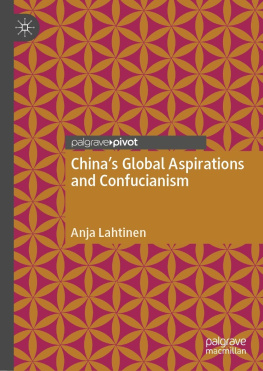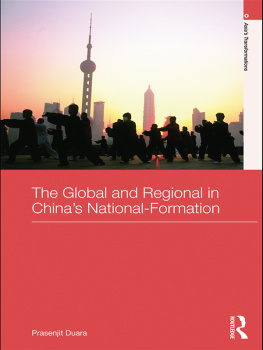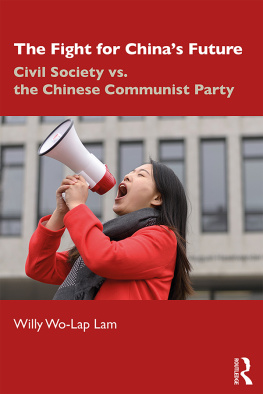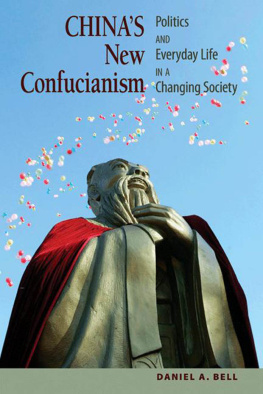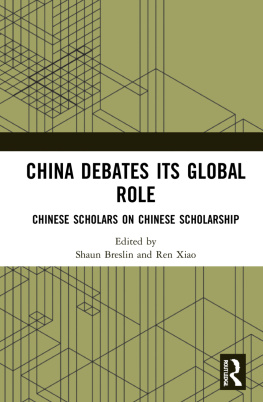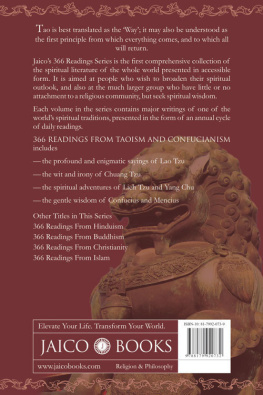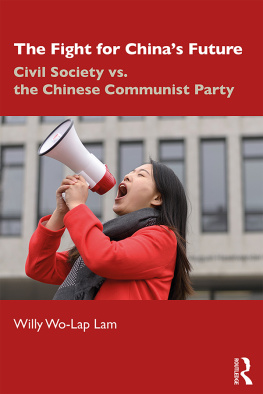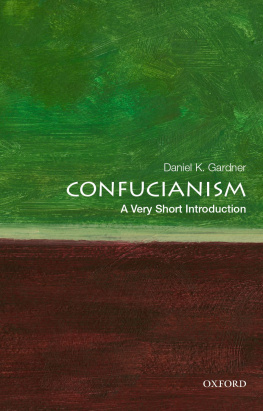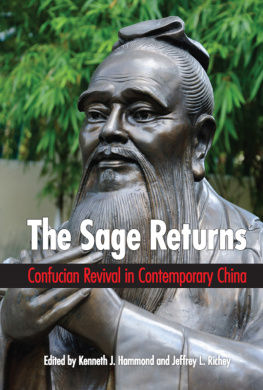Anja Lahtinen - Chinas Global Aspirations and Confucianism
Here you can read online Anja Lahtinen - Chinas Global Aspirations and Confucianism full text of the book (entire story) in english for free. Download pdf and epub, get meaning, cover and reviews about this ebook. year: 2022, publisher: Springer, genre: Politics. Description of the work, (preface) as well as reviews are available. Best literature library LitArk.com created for fans of good reading and offers a wide selection of genres:
Romance novel
Science fiction
Adventure
Detective
Science
History
Home and family
Prose
Art
Politics
Computer
Non-fiction
Religion
Business
Children
Humor
Choose a favorite category and find really read worthwhile books. Enjoy immersion in the world of imagination, feel the emotions of the characters or learn something new for yourself, make an fascinating discovery.
- Book:Chinas Global Aspirations and Confucianism
- Author:
- Publisher:Springer
- Genre:
- Year:2022
- Rating:4 / 5
- Favourites:Add to favourites
- Your mark:
- 80
- 1
- 2
- 3
- 4
- 5
Chinas Global Aspirations and Confucianism: summary, description and annotation
We offer to read an annotation, description, summary or preface (depends on what the author of the book "Chinas Global Aspirations and Confucianism" wrote himself). If you haven't found the necessary information about the book — write in the comments, we will try to find it.
Chinas Global Aspirations and Confucianism — read online for free the complete book (whole text) full work
Below is the text of the book, divided by pages. System saving the place of the last page read, allows you to conveniently read the book "Chinas Global Aspirations and Confucianism" online for free, without having to search again every time where you left off. Put a bookmark, and you can go to the page where you finished reading at any time.
Font size:
Interval:
Bookmark:
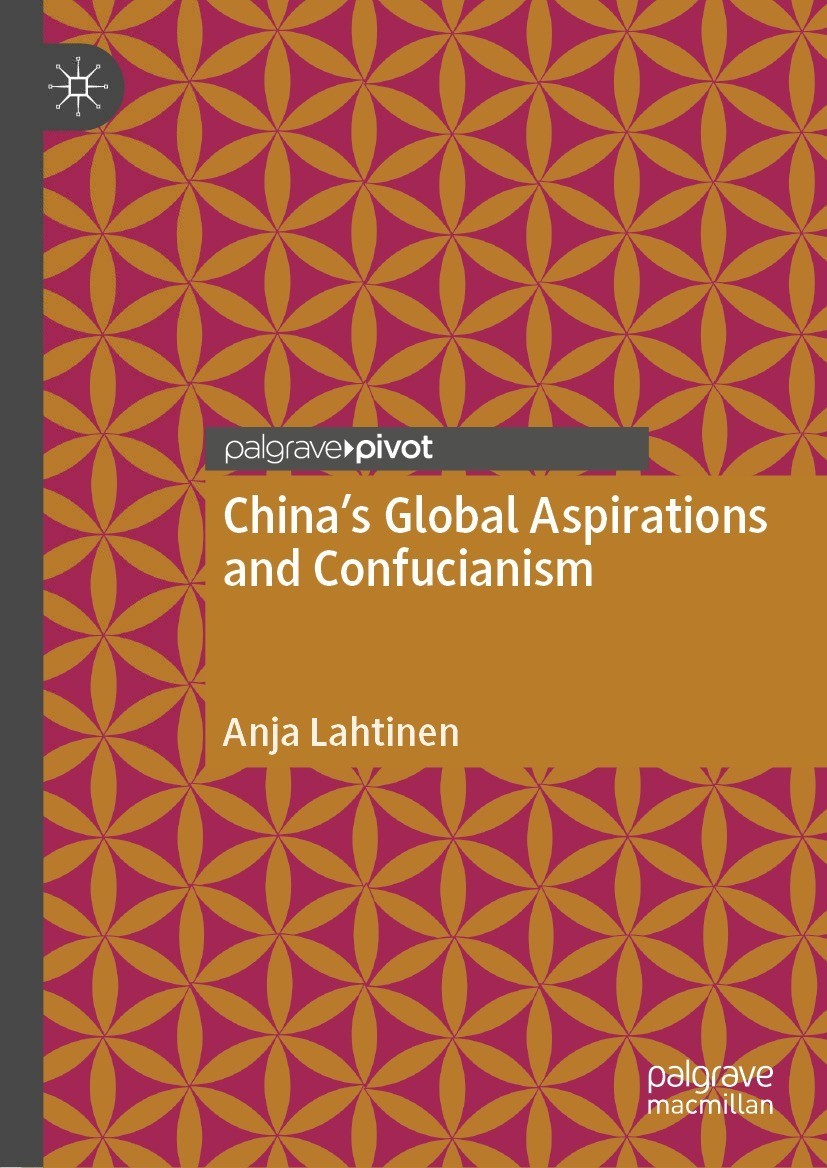

Cover illustration: Melisa Hasan
This Palgrave Macmillan imprint is published by the registered company Springer Nature Switzerland AG
The registered company address is: Gewerbestrasse 11, 6330 Cham, Switzerland
For Alina, Leo, Aava, and Arthur
Confucianism and Chinas Global Aspirations explores Confucianism and discusses Chinas global aspirations from economic and political standpoints. It opens a broader picture of China influenced by its history and philosophies that profoundly impact how China acts and thinks.
This book draws extracts from a wide range of primary and secondary sources, covering Confucianism, a traditional Chinese philosophy that has profoundly impacted Chinese thinking. Today Confucianism has a role in society while it has been augmented as the soft power that the government uses to obtain its foreign policy goals.
In this latest endeavour of my long China journey, I have investigated Chinas global ambitions today. To better understand how China thinks and acts, I have employed historical and cultural narratives as a methodology.
Sincere thanks to my family and friends for their continuous support to accomplish my work.
Chinas globalisation dates to the Silk Road through contact with Marco Polo and the Jesuits trying to convert Chinese to Catholicism. From 1949 until the late 1980s, Chinas strategy relied on security balancing with the United States and the Soviet Union. In the 1990s, it moved to market-led economic growth and amicable external relations. Today, Chinas globalisation is intertwined with the Belt and Road Initiative and the Chinese concept The Community with Shared Future for Mankind, firmly embedded by Confucianism as Chinas soft power. China has become an economic power asserting its economic and diplomatic clout to win allies to invest and trade worldwide. However, its quest for global power is not just economics. At the same time, China seeks more significant influence in world affairs at the international institutions and forums.
Chinas grand strategy is to reach modernity by 2050 and be a fully modernised country. China has become an economic power asserting its economic and diplomatic clout to win allies to invest and trade worldwide through winwin partnerships with no strings attached. China seeks more significant influence in world affairs at the international institutions and forums while contesting human rights.
Half a century ago China was poor, chaotic, and isolated due to the cultural revolution (19661976). Doctrinal differences caused the Sino-Soviet split that influenced geopolitics during the Cold War (19451991). In February 1972, US President Richard Nixon visited China. It opened new opportunities in trade, travel, and exchanges in education, science, sports, and culture. In December 1978, Deng Xiaoping announced that China would open its national economy. His hallmark was economic growth, stability, and pragmatic foreign policy. China established special economic zones in coastal cities and attracted investors to them. In 1980, China joined the International Monetary Fund , the IMF, and the World Bank , and the money taps opened. In 2001, the country was admitted to the World Trade Organization (WTO). In forty years, China urbanised, industrialised, and internationalised.
China has become the primary economic and development partner for emerging countries through its multilateralism policy and economic diplomacy. Chinas strong foothold in Africa began through its aid to new established African countries in the 1960s. Furthermore, it imported raw materials and energy during the last twenty years and invested in Africas infrastructure. Since Xi Jinping came into power in 2012, the economic, social, and foreign policy trajectories have been revised and changed. His political authority in the domestic sphere proactive and assertive foreign policy have brought China into the new era.
Chinas Belt and Road Initiative (BRI ) was launched in 2013. President Xi Jinpings ambitious plan is to develop new trade routes to connect China with the rest of the world. The initiative comprises building the infrastructure of railways, roads, bridges, and airports while it provides the world market for Chinas state-owned companies. The BRI is also the governments instrument to stimulate growth in Chinas less-developed provinces and encourage their businesses to compete for contracts. Chinese investments abroad also have adverse outcomes, such as poor quality, environmental degradation, corruption, and the influx of Chinese labour. Chinas debt trap diplomacy is a problem for borrowing countries as it is for China. Chinas global initiative has opportunities while there are geopolitical concerns with economic, political, social, and environmental aspects of the countries and regions on the road.
Chinas quest for global power is not just economics. From 1949 until the decline of the Soviet Union in the late 1980s, Chinas strategy relied on security balancing with the United States and the Soviet Union. In the 1990s, its strategy approach moved to a calculative approach, emphasising market-led economic growth and amicable external relations with all states while developing its military capabilities. China has upgraded its strategic partnerships and expanded military exchanges and joint exercises with Russia, Pakistan, and Iran in recent years. China seeks to reintegrate Taiwan , take back the Diaoyu Islands (known in Japan as the Senkaku Islands) from Japan, and control most of the South China Sea. So does the United States. It is pursuing similar agenda to become a hegemon in its region and the most influential country in the world. It has long-standing allies Japan and South Korea, multilateral partnerships such as the Quadrilateral Security Dialogue (with Australia, India, and Japan) and the newly formed AUKUS pact (with Australia and the United Kingdom). Chinas successful competition entails that the United States respects China and refrains from harming Chinese interests and managing their differences according to norms upheld by China. Heath, Grossman, and Clark, 2021. In other words, China is challenging the US hegemon, its unilateralism and military power.
Font size:
Interval:
Bookmark:
Similar books «Chinas Global Aspirations and Confucianism»
Look at similar books to Chinas Global Aspirations and Confucianism. We have selected literature similar in name and meaning in the hope of providing readers with more options to find new, interesting, not yet read works.
Discussion, reviews of the book Chinas Global Aspirations and Confucianism and just readers' own opinions. Leave your comments, write what you think about the work, its meaning or the main characters. Specify what exactly you liked and what you didn't like, and why you think so.

